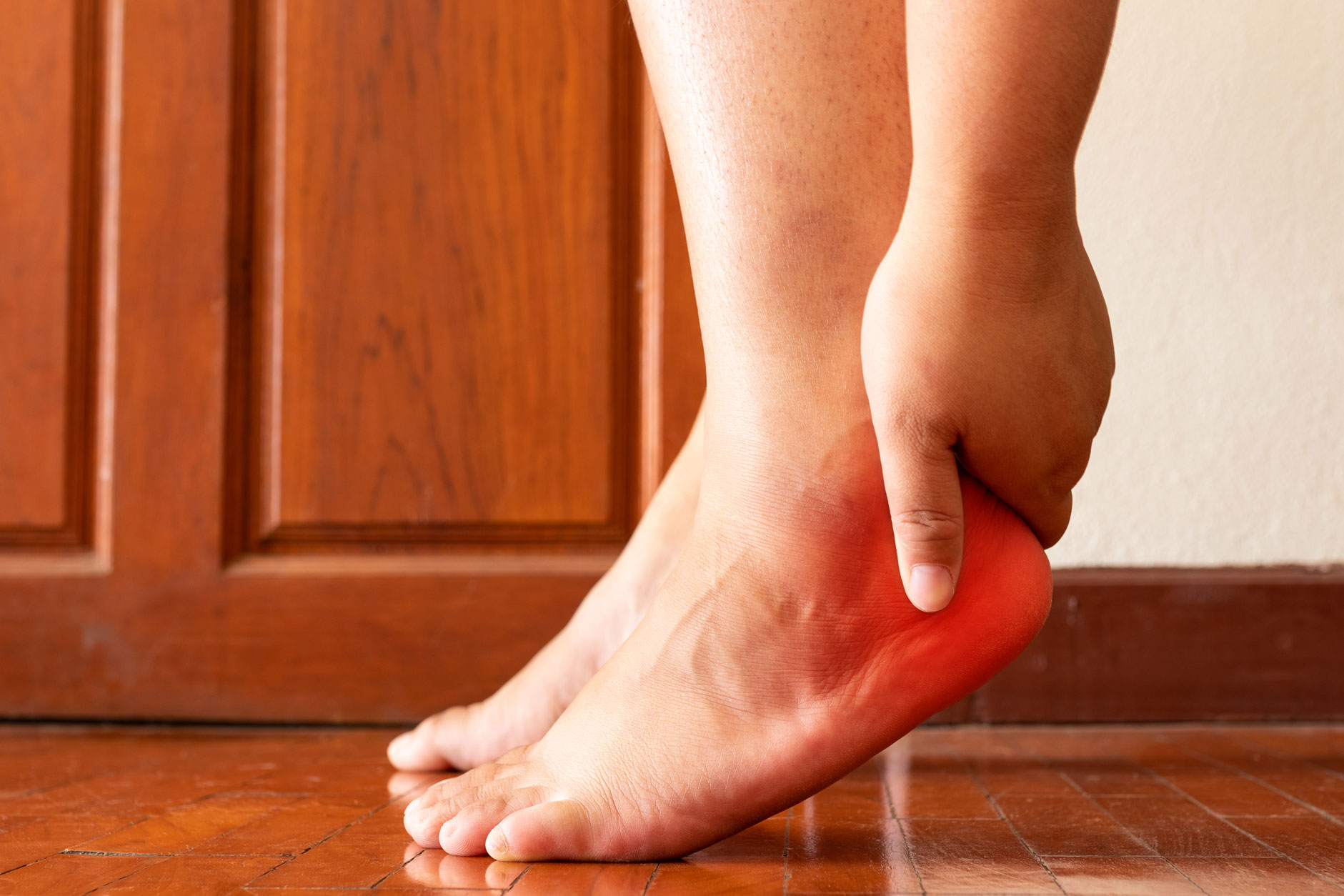Why Does Plantar Fasciitis Hurt So Much?

Plantar fasciitis is one of the most common causes of heel pain. Inflammation of a thick band of tissue that runs across the bottom of your foot and connects your heel bone to your toes becomes tight and commonly causes stabbing/burning pain. People report that it usually occurs with your first steps in the morning. It is more common in runners, people who are overweight, and those who wear shoes with inadequate support.
Thomas Best, M.D., Ph.D., is a sports medicine physician at the University of Miami Sports Medicine Institute and team physician for the University of Miami Department of Intercollegiate Athletics and the Miami Marlins. He sees a lot of plantar fasciitis pain among his young and not-so-young athletes.
What are the symptoms of plantar fasciitis?
Well, like most conditions, the key is the history and physical exam, therefore largely a clinical diagnosis. It has several hallmark symptoms:
- Pain worst in the morning
- Improves as the day goes on
- Typically worse on the inside of the heel
- Patients describe it as burning type of pain
In addition to plantar fasciitis, we also have to consider problems such as osteoarthritis of the ankle or foot, heel stress fracture, or a vascular condition. X-rays are helpful in sorting those out.
What causes plantar fasciitis?
The plantar fascia, which is responsible for maintaining the lengthwise arch of the foot, becomes irritated, inflamed, or torn by repetitive stresses placed upon it. Situations that make us more prone to having plantar fasciitis, especially in runners, are too much pronation (the amount that the foot rolls inward toward the arch), a flat foot or a cavus foot, which is the opposotie: a foot with a very high arch, which puts an excessive amount of weight on the ball and heel of the foot.
Other situations that make plantar fasciitis more likely include a tight Achilles tendon, the type of training shoes worn, and errors in your training routine.
What type of testing do you do to confirm the diagnosis?
Typically, we get X-rays, particularly if the patient is over age 40, because we are also looking for osteoarthritis, or may be concerned about a heel stress fracture, particularly in a runner with chronic heel pain. X-rays may also show enthesophytes (bone spurs), which are abnormal bony projections at the attachment of the tendon or ligament, a response to stress.
What are the treatments for plantar fasciitis?
We usually put people on a home stretching program when getting out of bed, emphasizing Achilles/heel cord stretching. They can be referred to a physical therapist (PT) if they have failed a home exercise program or have a more severe case and want to get back to sport and physical activity quickly.
An ice bag or bag of frozen peas helps with the pain. They can also massage the plantar fascia by rolling a tennis or golf ball along it. For people with a high arch (cavus foot), we recommend arch supports.
When might other treatments be required?
If the pain is not improving with PT and other interventions within six to eight weeks, we then consider steroid injections, PRP injections, shock wave therapy or custom foot orthotics.
In general, how long does it take to recover?
It often takes two to three months, occasionally longer.
Should people continue their normal activities, like running, during that time?
In general, you are safe to continue your activities, such as running, provided you warm up well with stretching and even some heat. For more explosive activities involving jumping, such as basketball, one should be a little careful as there are reports of the plantar fascia rupturing with these types of activities.
How can I prevent plantar fasciitis?
Typical preventive measures include Achilles stretching, correction of foot arch problems with orthotics, and a gait analysis to correct problems in technique before they result in pain. This is especially important in runners and athletes who want to sustain an activity.
Mary Jo Blackwood, RN, MPH, is a contributing writer for UMiami Health News.
Tags: Dr. Thomas Best, foot pain, plantar fasciitis pain, sports medicine in miami, Sports Medicine Institute
